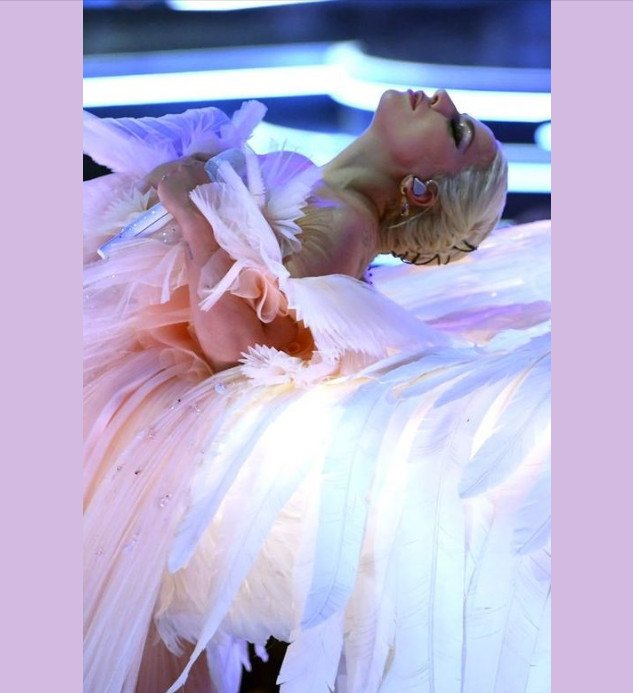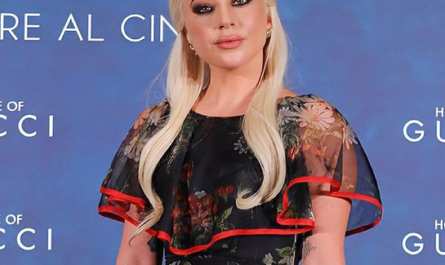Lady Gaga burst onto the music scene in 2008 with her debut album The Fame, known for its catchy dance-pop anthems and Gaga’s flamboyant persona. While her unique style and catchy songs made her an instant star, her lyrics in those early days focused more on themes of fame, individuality, and empowerment rather than emotional depth. However, as Gaga matured as an artist and grew more comfortable sharing her personal experiences, her lyrics evolved to explore a deeper range of emotions. Tracing Gaga’s discography reveals a clear progression towards greater vulnerability, nuance, and emotional resonance over time.
Early Career: Catchy Pop Anthems and Empowerment
The Fame and its companion EP The Fame Monster, released in 2008 and 2009 respectively, established Gaga as a force in pop music. Singles like “Just Dance,” “Poker Face,” and “Bad Romance” were irresistibly catchy club bangers that celebrated individuality, partying, and living for fame and fortune. Lyrically, these songs dealt more with themes of empowerment, self-invention, and living unapologetically according to one’s own rules. For example, “Poker Face” is about keeping one’s desires hidden but still owning one’s sexuality. “Bad Romance” portrays a woman in control of her own destiny who is “not looking for something sacred.”
While empowering, the emotional range explored in these early songs was relatively limited. Gaga was focused more on crafting anthemic pop songs than deeply personal lyrics. The Fame era showcased Gaga’s talent for catchy, danceable pop but did not delve too far beneath the surface. Songs like “Paparazzi” hinted at darker themes like obsession and toxicity in relationships, but the lyrics stayed fairly conceptual rather than personal. Overall, Gaga’s goal at this stage seemed to be crafting irresistible pop hits rather than emotionally resonant storytelling. The lyrics served the music rather than the other way around.
Moving Inward: Vulnerability and Self-Acceptance
With her third studio album Born This Way, released in 2011, Gaga began exploring deeper emotional territory in her lyrics. While still containing club-ready smashes, this era saw Gaga opening up more about her personal experiences with love, sexuality, and self-acceptance. The album’s title track “Born This Way” became an anthem of empowerment through its message of self-love and acceptance of one’s natural traits. Songs like “Government Hooker” and “You and I” portrayed more complex relationships and desires. Lyrically, Gaga was embracing vulnerability in a way she had not before.
This newfound vulnerability continued on Gaga’s 2013 album Artpop. Singles like “Applause” still celebrated her talent and individuality but with added layers of self-doubt – “All I ever wanted was the world/I can’t fulfill your dreams, only mine.” Deeper cuts showed Gaga’s insecurities more plainly, like “G.U.Y.” exploring the complexities of her sexuality and relationships. The lyrics had evolved past simple pronouncements to more nuanced portrayals of inner emotional turmoil. While Artpop faced criticism for some of its more conceptual elements, Gaga undeniably expanded her emotional range on this album through lyrics dealing with themes of self-acceptance, vulnerability, and the messiness of human desires and relationships.
Shifting Gears: Personal Struggles and Growth
Gaga’s pivot towards even greater emotional depth came with her 2014 jazz and country-influenced album Joanne. In contrast to her more conceptual previous efforts, Joanne felt deeply personal as Gaga opened up about her family, personal struggles, and growth. The title track was a touching tribute to her late aunt Joanne, whose middle name she took as the album’s namesake. Elsewhere, songs like “Million Reasons” and “Dancin’ in Circles” dealt frankly with heartbreak, self-reflection, and the difficulties of relationships.
This personal evolution continued on Gaga’s 2020 album Chromatica. Deemed by many critics to be her most cohesive artistic statement yet, Chromatica found Gaga at her most emotionally candid. She explored themes of trauma, mental health struggles, toxic relationships, survivor’s guilt, and ultimately finding resilience. Singles like “Stupid Love” and “Rain on Me” portrayed the messy realities of love and heartbreak, while “911” tackled anxiety, self-medication, and her own mental health journey head-on through lyrics like “My biggest enemy is me/Popping pills trying to handle it.”
Even more impactful was the album’s closing track “Babylon.” Over sparse piano, Gaga reflected on overcoming self-doubt and darkness, singing “I don’t want to be alone/I don’t really know myself/I just wanna go home.” These raw, vulnerable lyrics showed how far Gaga had come from her early fame-centric anthems to crafting emotionally resonant storytelling through deeply personal lyrics. Chromatica proved Gaga had truly come into her own as an artist willing to bear her soul.
Conclusion
Lady Gaga’s evolution as a songwriter is reflected through the emotional depth and vulnerability showcased across her discography. From her early catchy pop anthems celebrating fame and individuality on The Fame, she gradually opened herself up more through albums like Born This Way, Artpop, and Joanne. Gaga found her most cohesive artistic statement yet on 2020’s Chromatica, where she crafted her most emotionally candid lyrics to date exploring personal struggles, resilience, and healing.
While Gaga will likely always be known for her catchy pop bops, her lyrical progression shows an artist continuously growing more comfortable sharing her inner experiences. No longer content with conceptual pronouncements, Gaga’s lyrics have become richly nuanced portrayals of the complexities of the human condition. She continues to explore a wide range of important themes through her art, but with a newfound emotional resonance that connects more deeply with listeners. Lady Gaga’s evolution exemplifies how pop music’s message can mature along with its artist, achieving resonance far beyond catchy hooks or shock value alone. Through vulnerability and emotional truth, Gaga has crafted some of 21st century pop’s most poignant storytelling.



